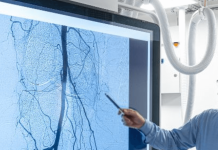Wandercraft announced it secured $75 million in funding as part of its Series D financing round to support its robotic exoskeleton.
Renault Group, PSIM fund, managed on behalf of the French State by Bpifrance, Teampact Ventures and Quadrant Management contributed. The company says the latest capital infusion comes during a time of rapid growth, increased global visibility and product innovation.
Related: Atraverse raises $29.4M for left-heart access device
Wandercraft plans to use the new funding to help accelerate into the next phase of growth. It hopes to bring Eve, the world’s first self-balancing exoskeleton, to market as early as 2026. The company also hopes to expand the clinical adoption of its flagship Atalante X rehabilitation system. Finally, it seeks to develop and deploy Calvin-40, its humanoid robot.
“The momentum we’ve achieved over the past few years is extraordinary,” said Matthieu Masselin, CEO and Co-founder of Wandercraft. “We’ve expanded globally, launched pivotal clinical trials, readied the commercialization of Eve, our personal exoskeleton, and entered a landmark partnership with Renault Group. This funding allows us to continue our mission of transforming how people live, move, and work across rehabilitation, home environments, and soon on factory floors.”
Wandercraft recently announced that Renault Group now has a minority stake ownership and strategic partnership with the company. The car manufacturer looks to bring industrial expertise to help scale up Wandercraft’s offerings.
The company’s recent highlights include the enrollment of the first participants in a clinical trial evaluating its Personal Exoskeleton system. It already offers the FDA-cleared Atalante X exoskeleton for individuals with spinal cord injuries (SCIs). Atalante X, a self-balancing robotic exoskeleton, enables those with limited mobility to stand up and walk again.




